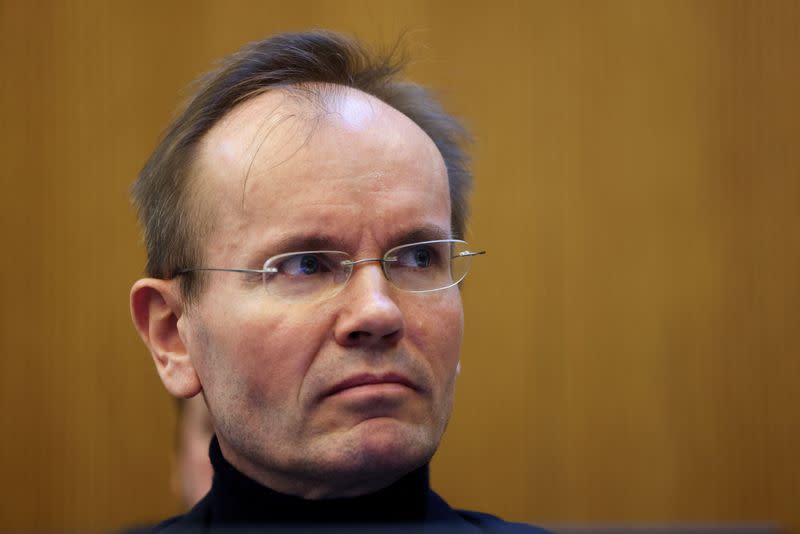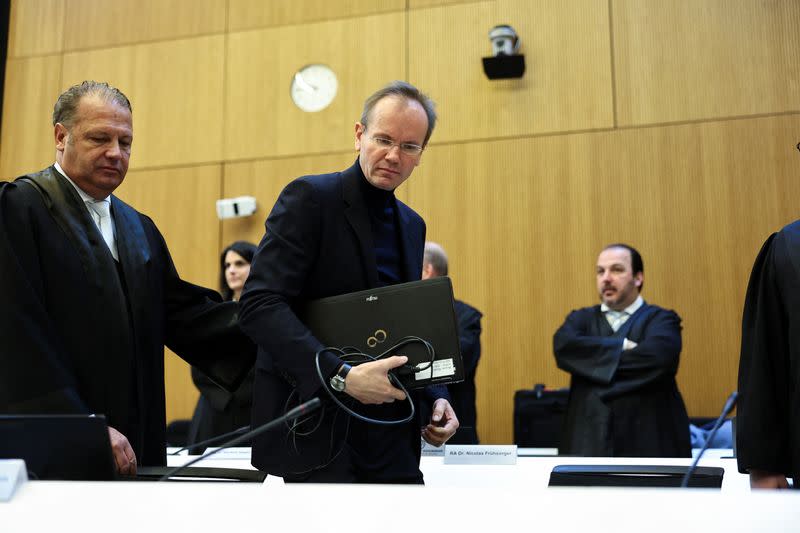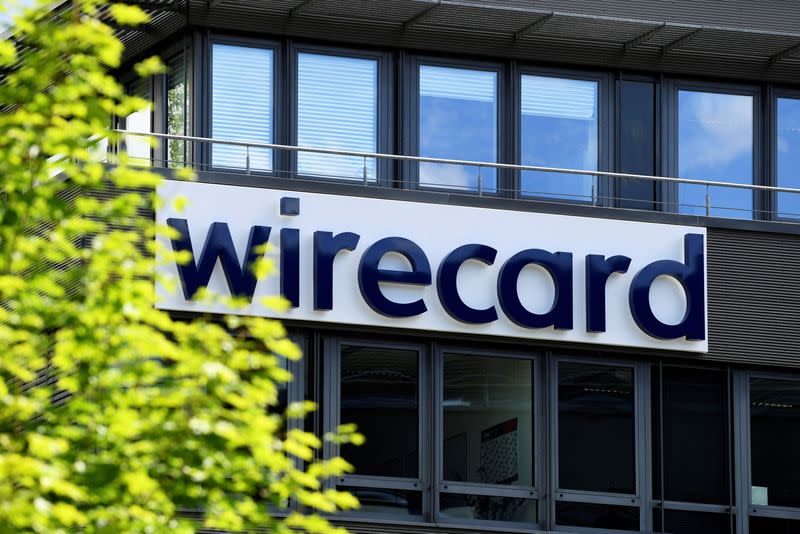By Jörn Poltz
MUNICH (Reuters) - Wirecard's former chief executive, who steered the payments company through its rise and spectacular collapse two years ago, went on trial for fraud on Thursday after a scandal that shook German politics and tarnished the country's business reputation.
The 53-year-old former CEO Markus Braun, who has been in custody since his arrest in 2020, and two other managers of the former blue chip company face charges including fraud and market manipulation that could result in a jail term of up to 15 years for each of them if convicted.
In his first public appearance in more than two years, Braun entered the courtroom to hear the charges carrying a laptop, wearing rimless glasses and a dark turtleneck jumper and jacket, and speaking briefly to confirm his identity.
The trial is taking place in Munich's largest and newest courtroom, a bomb-proof underground hall built in the Stadelheim prison complex.
Braun, an Austrian born in Vienna, has denied embezzling money from Wirecard and accused others of running a shadow operation without his knowledge.
A verdict is not expected before 2024 at the earliest.
Founded in 1999 and based in the Munich suburb of Aschheim, Wirecard's fairy-tale rise transformed it from a payment processor for pornography and online gambling to a showpiece for a new type of German tech company that could compete with the established titans of Europe's largest economy.
It displaced Commerzbank in Germany's DAX blue-chip index and at one point was worth $28 billion.
Its demise embarrassed the German establishment, placing politicians who backed the company and regulators who took years to investigate it under scrutiny.
After batting away suspicions of wrongdoing from investors and journalists and successfully lobbying the German authorities to investigate those who were scrutinising its finances, Wirecard was forced to admit in June 2020 that 1.9 billion euros ($2 billion) were missing from its balance sheet.
The government of then Chancellor Angela Merkel briefly considered bailing out the company.
However, within days, Wirecard became the first-ever DAX member to file for insolvency, owing nearly $4 billion.
The prosecution asserts that Wirecard invented vast sums of phantom revenue to mislead investors and creditors and drive up the share price.
Public prosecutor Matthias Buehring said its management created bogus business transactions with partner companies under their control in Dubai, the Philippines and Singapore.
The fraud let Wirecard managers siphon money out of the company with no proper checks and balances.





